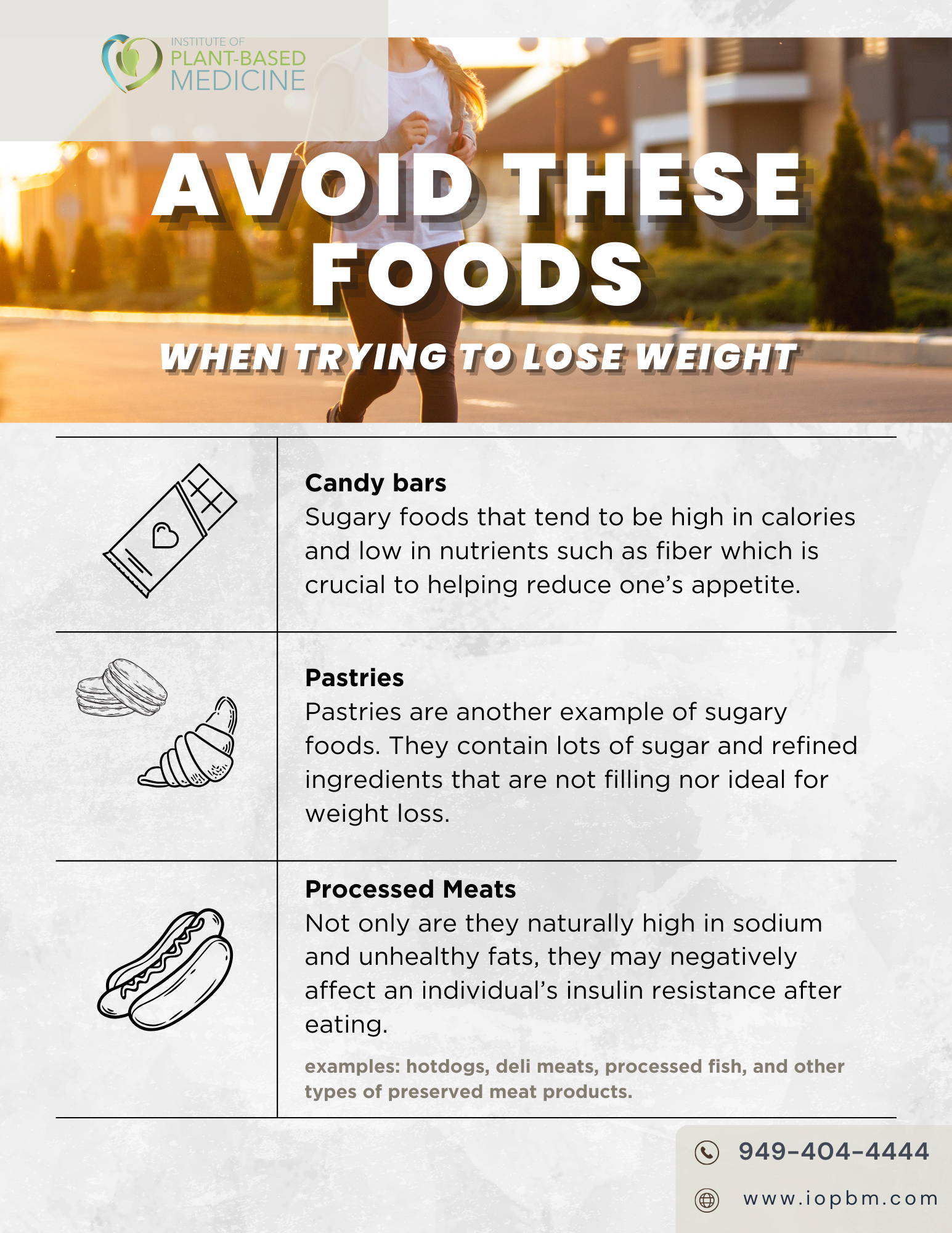No Products in the Cart
The key to weight loss is to be considerate of the amount of calories you are consuming relative to how many calories are being burned. Therefore, calorically dense foods are of concern as it leaves individuals feeling unsatisfied even when consumed in large quantities.

Studies have shown that the incidence of large weight gain has been linked to an increase in consuming ultra processed foods. Specifically, there was a 20-30% greater risk of weight gain and an increased incidence of obesity over 4 years of follow up in the group that consumed more processed foods. In addition, people on an ultra processed diet consumed about 500 more calories per day than they did on a healthier, minimally processed diet.
Sugar plays a big role in overall weight gain as an excess amount may lead to obesity. This tends to be because added sugars remarkably increase calories in many foods, leading to a higher chance of weight gain. For example, sugary beverages are considered to be one of the unhealthiest foods. They are not only packed with calories but also the brain doesn’t process it the same way it does for solid foods. In other words, sugary foods typically don’t contribute to fullness, so ultimately, they stand as empty calories that make it much more difficult for individuals trying to lose weight, to achieve a calorie deficit. It also stands as an unsustainable way of handling the intake of calories. Therefore, beverages that have more protein, or fiber rather than sugar and unhealthy fats, can boost satiety, slowing down the emptying of the stomach. When consuming liquid calories and trying to lose weight, it’s crucial to swap out beverages that are highly refined and packed with poor nutrients.
Candy bars and pastries are other examples of sugary foods that tend to be high in calories and low in nutrients such as fiber which is crucial to helping reduce one’s appetite. They contain lots of sugar and refined ingredients that are not filling nor ideal for weight loss. Processed meats are another popular category that is viewed negatively when talking about weight loss. These foods include, hotdogs, deli meats, processed fish, and other types of preserved meat products. Not only are they naturally high in sodium and unhealthy fats, they may negatively affect an individual’s insulin resistance after eating. This can potentially lead to many dietary and metabolic complications in the long run, making weight loss more difficult. Overall, processed ingredients commonly lead to more hunger and therefore result in weight gain. For that reason, it’s ideal to choose foods that cut down on calories but at the same time maximize nutritional value and satiety.
Are you ready to take a proactive step towards achieving your weight loss goals? We're here to support you every step of the way. Subscribe to our weight loss program today and gain access to expert guidance, personalized strategies, and a community of individuals on similar journeys. Together, we'll help you make informed choices and transform your relationship with food, making your path to a healthier you an achievable reality. Join us now and let's embark on this transformative journey together.
References:
1. Hall, K. D., & Kahan, S. (2018). Maintenance of Lost Weight and Long-Term Management of Obesity. Medical Clinics of North America, 102(1), 183-197. https://doi.org/10.1016/j.mcna.2017.08.012
2. Canhada, S., Luft, V., Giatti, L., Duncan, B., Chor, D., Fonseca, M., . . . Schmidt, M. (2020). Ultra-processed foods, incident overweight and obesity, and longitudinal changes in weight and waist circumference: The Brazilian Longitudinal Study of Adult Health (ELSA-Brasil). Public Health Nutrition, 23(6), 1076-1086. doi:10.1017/S1368980019002854
3. American Journal of Clinical Nutrition. (2023). American Journal of Clinical Nutrition. https://ajcn.nutrition.org
4. Health Canal. (2023). Foods to Avoid to Lose Weight. Health Canal. https://www.healthcanal.com/nutrition/foods-avoid-to-lose-weight